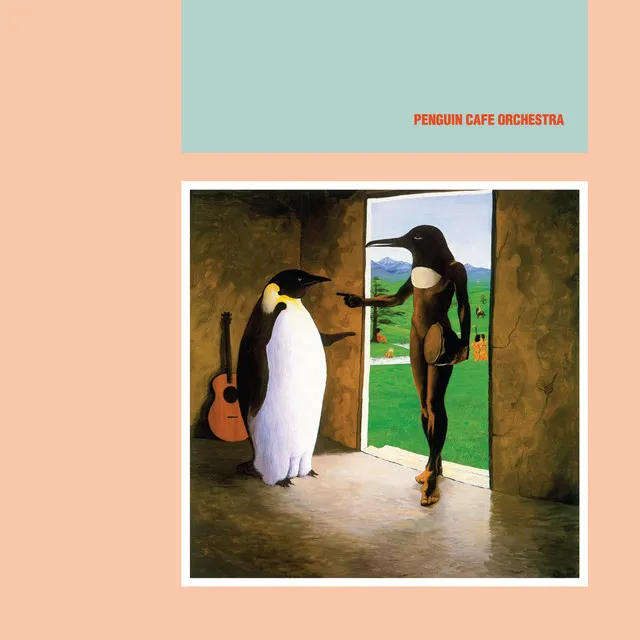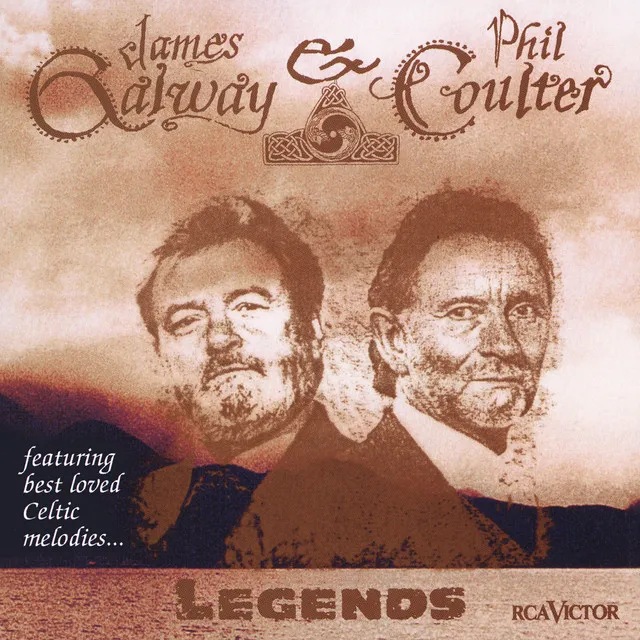The Penguin Cafe Orchestra (PCO) was founded by British composer Simon Jeffes (born February 19, 1949; died December 10, 1997). Born in Sussex, England, and raised in Canada and around Europe, Jeffes began playing the guitar at the age of 13 while attending boarding school in England and then studied classical guitar, piano, and music theory at Chiswick Polytechnic, but dropped out before graduating. He worked with Gilbert Biberian's Omega Players for a time and accompanied producer Rupert Hine on Hine's solo albums Pick Up a Bone (1970) and Unfinished Picture (1971). While living in Japan in 1972, he developed an interest in ethnic music, particularly African styles, and decided to try to merge those styles with more traditional Western sounds. He launched the PCO as an outlet for his compositions with this eclectic hybrid approach. He always said that the "Penguin Cafe" concept was one that came to him in a dream while he was suffering from food poisoning in the south of France in the summer of 1972, after which he wrote a poem that began, "I am the proprietor of the Penguin Cafe, I will tell you things at random." He described the music of the group as "modern semi-acoustic chamber music."
The PCO was organized as a fluctuating unit in which Jeffes and cellist Helen Liebmann were the only permanent members. At first, when it began playing in London, England, in 1973, it was called the Penguin Cafe Quartet. The members of the group, not yet performing publicly, were Jeffes (on electric guitar), Liebmann, violinist Gavyn Wright, and Steve Nye on electric piano. In 1974, they made their first recordings, "Penguin Cafe Single," "The Sound of Someone You Love Who's Going Away," and "It Doesn't Matter." In 1975, Nye, who knew producer Brian Eno, introduced Jeffes to him, and Eno invited the group to record for his Obscure Records, an imprint of Editions E.G.. They did, adding university lecturer Neil Rennie (ukulele) and Emily Young (vocals), a painter who gave the group a visual style with her cover painting for the album, Music from the Penguin Cafe (1976). The first concert by the ensemble was an opening slot for Kraftwerk at the Roundhouse in London in 1977, and the group expanded further to include Geoffrey Richardson (viola), Peter Veitch (accordion), Giles Leaman (woodwinds), Braco (drums), and Julio Segovia (cymbals). Now boasting far more than four members, the band was too big to be called a quartet, and it was christened the Penguin Cafe Orchestra.
In 1979, Jeffes converted a garage in North Kensington into a recording studio and in 1980 began working on the PCO's second album, released as Penguin Cafe Orchestra in 1981. Afterwards, composer Marcus Beale joined the group on violin in time for the first European tour. A Japanese tour followed in early 1982. Popular acclaim in Japan led to another tour there and the recording of Mini Album, a live EP, mostly in Tokyo. As the PCO prepared its third full-length LP, Broadcasting from Home (1984), personnel came and went, the additions including Annie Whitehead (trombone), Dave Defries (trumpet), and drummers Fami, Trevor Morais, and Mike Giles. After the album was released, the group raised its profile by touring extensively and appearing on television, and the fourth album, Signs of Life actually reached the British charts in April 1987. (The album featured new members Danny Cummings on percussion and Bob Loveday on violin.)
Continuing to tour, the PCO recorded a full-length live album at Festival Hall on July 9, 1987; it was released in 1988 under the title When in Rome .... New members included Ian Maidman (bass, percussion) and Paul Street (guitar). Jeffes next accepted an invitation from choreographer David Bintley of the Royal Ballet to adapt some of the PCO's music for a dance piece, resulting in the ballet Still Life at the Penguin Cafe, which was performed at Covent Garden and elsewhere in the U.K., as well as in Germany and Australia. The PCO also toured, primarily in Europe, during the late '80s and early '90s. For their next and final studio album of new material, Union Café (1993; released on Jeffes' own Zopf label), the group consisted of Jeffes, Liebmann, Maidman, Rennie, Richardson, Segovia, and Whitehead, although many guest musicians also contributed. Their 1994 tour was commemorated with another live album, Concert Program (1995), recorded July 23, 1994, at Wool Hall in Somerset, England. (New age label Windham Hill distributed the disc in the U.S.)
The PCO continued into the mid-'90s, although Jeffes gradually became less active, moving to Somerset in 1996 and concentrating on solo piano. The band's formal dissolution was confirmed by his death from a brain tumor. While the PCO's music was featured in many television commercials and films, it formed the soundtrack for the 1998 movie Oskar und Leni, resulting in a soundtrack album released by Peregrina in 1999.
Members of the group reunited ten years after Jeffes' death for concerts on December 11, 12, and 13, 2007, at the Union Chapel in Islington, North London. This commemorative edition of the PCO included Helen Liebmann (cello), Neil Rennie (ukulele), Geoffrey Richardson (viola/clarinet), Peter McGowan (violin), Steve Fletcher (piano), Barbara Bolte (oboe), Annie Whitehead (trombone), and Jennifer Maidman (bass/percussion), with guest appearances by Steve Nye and Jeffes' son Arthur Jeffes. Although the shows were well attended and well received, the group announced immediately afterward that it had no further plans for concerts. In October 2008, a note on the PCO's official website mysteriously said, "There are some very tentative plans afoot to start a new enterprise in the PCO saga... more later." Arthur Jeffes formed Music from the Penguin Cafe, an ensemble which featured no original PCO members, but continued the group's sound and aesthetic, performing older PCO compositions as well as original pieces written by Arthur. The successor soon shortened its name to Penguin Cafe and began performing at festivals in 2009, and released their debut studio album, A Matter of Life..., in 2011. Meanwhile, original PCO members occasionally performed the original ensemble's music as the Anteaters, eventually changing their moniker to the Orchestra That Fell to Earth. ~ William Ruhlmann, Rovi


